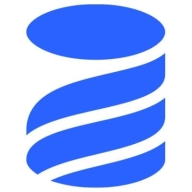

IBM Rational ClearCase and Liquibase compete in configuration management and database schema change management, respectively. Liquibase is often preferred due to its modern features and cost benefits, despite IBM Rational ClearCase's comprehensive support services.
Features: IBM Rational ClearCase offers advanced version control capabilities, integration with other Rational tools, and extensive support services. Liquibase provides powerful database migration features, compatibility with multiple databases, and alignment with current DevOps practices.
Room for Improvement: IBM Rational ClearCase could improve its scalability options, provide more intuitive navigation, and enhance its modern feature set. Liquibase users seek better documentation, enhanced support for complex database environments, and more responsive customer service.
Ease of Deployment and Customer Service: IBM Rational ClearCase's deployment is complex and time-consuming but supported by extensive customer service. Liquibase offers a simpler and quicker deployment process, but its customer service can lack responsiveness.
Pricing and ROI: IBM Rational ClearCase has a higher initial setup cost but offers significant ROI through its comprehensive capabilities. Liquibase’s affordable pricing and quick time-to-value attract smaller teams and users looking for cost efficiency.


IBM Rational ClearCase is an enterprise-grade configuration management system that provides controlled access to software assets, including requirements, design documents, models, test plans and test results. It be can be integrated with other IBM solutions, including IBM Rational Team Concert, IBM Rational ClearQuest, IBM Rational Asset Manager and IBM Rational Application Developer for WebSphere Software.
Liquibase is a migration-based open source database version control solution that relies on a changelog to track what changesets have been deployed to a database, and what additional changesets needs to be applied to a database in order to migrate a database schema to a specific version. Liquibase supports an XML model for defining changesets so that database schema changes can easily be translated to another DBMS platforms. As an open source solution, Liquibase is ideal for smaller teams and projects or for teams that have ample time to invest in extending and adapting the open source capability to meet their needs.
We monitor all Version Control reviews to prevent fraudulent reviews and keep review quality high. We do not post reviews by company employees or direct competitors. We validate each review for authenticity via cross-reference with LinkedIn, and personal follow-up with the reviewer when necessary.